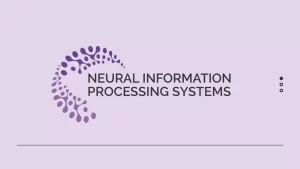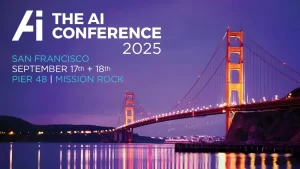GAI World 2025 and Boston AI Week: A Practical Guide to Getting the Most from Boston’s AI Moment

Boston will host an unusually concentrated burst of AI activity from September 26 to October 3, 2025. At the center sits GAI World 2025 — a two‑day conference (Sept. 29–30) focused on enterprise, in‑production generative AI — that anchors a city‑wide festival of more than 100 events known as Boston AI Week. For teams, leaders, and practitioners who want clear steps to extract value from the week, this guide outlines what to expect, how to prepare, and how to turn ideas into deployable results.
Why this week matters
GAI World deliberately targets organizations that have moved beyond pilots. Its program emphasizes case studies, operational learnings, and measurable ROI from enterprise GenAI. The conference lists more than 120 speakers, 60 enterprise case studies, and sessions tailored to life sciences, healthcare, and financial services. Boston AI Week surrounds GAI World with workshops, meetups, an AI Career Fair, and cultural events such as AI Woodstock, creating a mix of deep technical content, policy discussion, hiring opportunities, and community engagement.
That combination matters because it puts technical teams, executive decision‑makers, investors, regulators, and civic groups in the same week and place. For anyone trying to build production GenAI responsibly and sustainably, Boston offers a rare chance to learn proven approaches, recruit talent, and build partners.
Who should attend
GAI World and the broader week serve several distinct audiences. Here’s a quick breakdown to help people decide whether to go and how to prioritize time.
| Role | Primary value from attending |
|---|---|
| CEOs / Board members | Boardroom-level sessions on measuring ROI, governance, and enterprise strategy for GenAI. |
| CTOs / CIOs | Implementation patterns, LLM selection and hosting choices (on‑prem vs cloud), agent design, and scaling infrastructure. |
| Product managers / PMMs | Use cases and go‑to‑market insights; translating technical capability into customer value. |
| Engineers / ML Ops | Production agent architectures, observability, deployment practices, and cost optimization. |
| Legal / Compliance / Risk | Regulatory, privacy, and governance panels focused on enterprise deployments. |
| Investors / VCs | Emerging startup showcases and networking with corporate buyers. |
| HR / Talent / Recruiters | AI Career Fair and networking to hire practitioners across ML, MLOps, and data engineering. |
| Startups | Exhibitor booths, demo tracks, and investor meeting opportunities. |
How to prepare before you go
Make the week work for your priorities rather than trying to “do everything.” Use these practical steps.
- Clarify outcomes (one page)
- Decide three specific goals: hire one role, find a vendor for a use case, validate a security approach, or gather three ROI case studies. Keep them concrete and measurable.
- Build a compact team
- Bring a mixed team: an executive (strategy owner), an engineer/ML‑ops lead, and a product or business owner. Offer remote team members a daily debrief.
- Pre‑book meetings and sessions
- Popular talks and sponsor meetings fill quickly. Reserve any vendor briefings, startup demos, and meetups you want. Use the GAI World site for official agendas and the Boston AI Week schedule for local events.
- Prepare materials
- Bring a one‑page brief on your current GenAI status (data readiness, hosting preference, compliance constraints, budget range). Share this with potential partners in vendor meetings to get tailored responses.
- Pack the right tech
- Bring a laptop, portable hotspot, business cards (digital QR codes work well), and a note app for fast capture. If you’ll demo code or models, verify local networking and remote access ahead of time.
How to structure your time during the week
With over 100 events across Boston, time management matters. This sample daily plan assumes you’ll center your week on the two GAI World days while using surrounding days for targeted meetups, hiring, and partner discovery.
| Day | Focus |
|---|---|
| Sep 26–28 (pre‑week) | Attend specialized workshops and community meetups; scout startups and schedule vendor briefings during quieter days. |
| Sep 29 (GAI World Day 1) | Attend cross‑industry keynotes and 1–2 track sessions (life sciences/healthcare/finance). Evening: targeted networking dinners or the Boston Generative AI Meetup. |
| Sep 30 (GAI World Day 2) | Select deep dive case studies and engineering sessions; catch an exhibitor demo slot; attend Women in AI or Black Pioneers events if relevant. |
| Oct 1–3 (post‑week) | AI Career Fair (Oct 1), follow‑up investor/startup meetings, and AI Woodstock or cultural events to broaden perspective. |
What to look for in sessions and vendors
GAI World emphasizes “in‑production” GenAI. That should shape what you listen for and ask.
- Proven ROI metrics: Ask for topline KPIs—revenue lift, cost savings, NPS improvement, or throughput gains—and the time to those outcomes.
- Data and integration details: Where did the enterprise keep its data? How did they connect models to production systems and legacy services?
- Security and compliance: Probe for red teaming, data lineage, access controls, and audit trails used in production.
- Cost and inferencing strategy: Are they running large models on-prem, in private cloud, or hybrid? How do they control inference costs and latency?
- Organizational design: Who owns GenAI projects (product, data, or engineering)? What governance bodies existed and how did the company prioritize projects?
Top practical questions to ask presenters or vendors
- “What specific ROI metric did you track, and what baseline did you compare against?”
- “How long from pilot to production, and what blocked you most?”
- “Which parts of the system run on‑prem versus cloud, and why?”
- “How do you detect model drift and ensure ongoing performance?”
- “What skills did you hire versus build internally to support production?”
Turning conference learnings into action
Follow a short process after each day to convert sessions into momentum.
- Rapid distillation (same day)
- Each team member records two slides: (1) one key insight; (2) one action with an owner and timeline. Share at day end.
- Week after: Sprint plan
- Create a 2‑week sprint with 3 tasks: a vendor proof‑of‑concept, an internal architecture review, and a governance checklist tailored to your organization.
- 90‑day roadmap
- From sprint learnings, craft a 90‑day actionable roadmap that aligns budget, technical milestones, and measurable KPIs.
Table: Post‑conference checklist
| Item | Owner | Deadline |
|---|---|---|
| Summarize five vendor proposals | Product lead | 3 business days |
| Run security and privacy gap analysis | Security lead | 10 business days |
| Start pilot procurement (1 vendor) | Procurement/IT | 14 business days |
| Hire prioritized role from Career Fair candidates | HR | 30 business days |
| Define 90‑day ROI targets | Executive sponsor | 30 business days |
Networking strategies that work
- Do focused meetings: Book 20–30 minute sessions and use the time to validate fit, not to get a full product demo.
- Attend special interest gatherings: Women in AI breakfast and Celebrating Black Pioneers lunch are structured opportunities to meet leaders and allies.
- Use the AI Career Fair: For hiring, bring clear role descriptions and be ready to conduct quick first‑round interviews.
- Follow up fast: Send tailored emails within 48 hours, referencing a specific point from the conversation.
Common pitfalls and how to avoid them
- Pitfall: Treating the conference like a content binge. Fix: Prioritize 3 outcomes and check sessions against them.
- Pitfall: Buying a vendor solution the week after without a technical review. Fix: Insist on a proof‑of‑concept with clear acceptance criteria.
- Pitfall: Overfocusing on the “shiny demo” rather than integration. Fix: Always ask about data flows, monitoring, and maintenance requirements.
- Pitfall: Ignoring governance. Fix: Build a lightweight governance checklist covering data, model risk, access control, and audit.
Special opportunities unique to Boston AI Week
- Cross‑disciplinary events: Boston AI Week includes academic talks, civic policy discussions, and creative showcases like AI Woodstock; these can broaden the team’s view of ethical, legal, and social impact.
- Talent pipeline: The AI Career Fair and the large regional meetup provide concentrated access to practitioners from Boston’s universities and startups.
- Local ecosystem: The week’s distributed format lets attendees meet MIT and Harvard researchers, local startups, and corporate innovation teams in shorter, more focused sessions.
Practical budgeting and tickets
GAI World lists ticket prices in the range of roughly $1,595–$2,850. The conference offers team discounts (e.g., 50% off for bringing an AI team) and early discounts (15% off was available before mid‑September). Factor in vendor meetings, transportation, hotels around the Hynes Convention Center, and networking dinners when planning the total cost.
Final checklist before you land
- Goals: Three measurable outcomes documented.
- Team: Executive, engineer, product owner at minimum.
- Materials: One-page project brief and digital business card.
- Meetings: Vendor and speaker meetings booked.
- Follow-up plan: Debrief template and post‑conference sprint mapped.
The bottom line
Boston AI Week and GAI World 2025 concentrate practical, production‑focused knowledge in a way that rewards preparation. Attendees who come with clear goals, a small cross‑functional team, and a follow‑up plan will leave with actionable vendor choices, hiring leads, and concrete steps for rolling GenAI into production. The event’s abundance of case studies and peer conversations will save organizations time and cost by exposing real solutions that have already crossed the valley of death from pilot to production. Prepare to listen, test, and then build — Boston offers the contacts and the context, but the results come from rapid, disciplined follow‑through.
Further resources
- GAI World official site for agenda and ticketing.
- Boston AI Week schedule to discover community events and meetups.
- Event listings on BestAIEvents and VKTR for session details, sponsors, and registration links.
- Media alerts and press releases for speaker highlights and media contacts.
(Note: consult the official event pages for the latest schedules, speakers, and ticket availability.)




